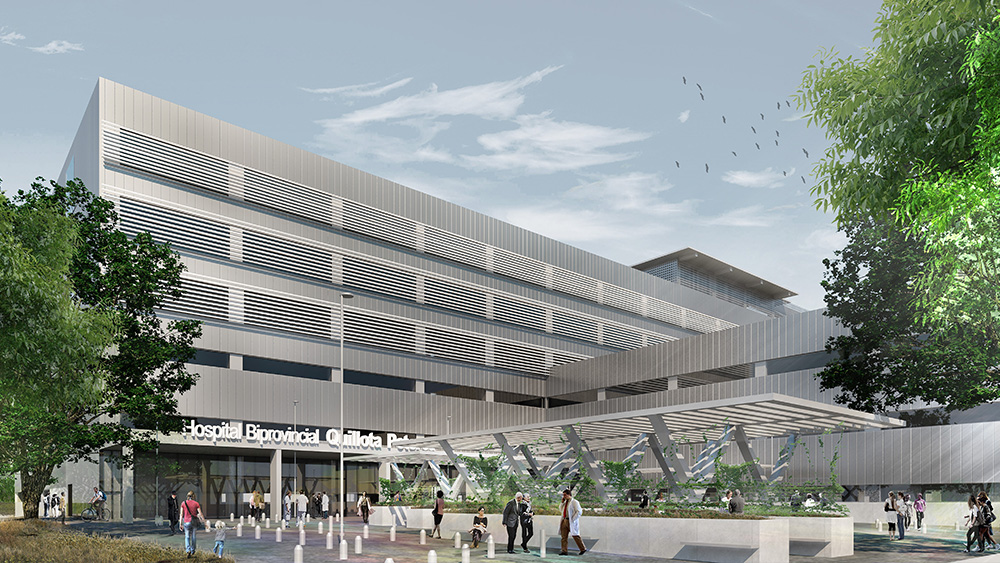Construction work began on the Bi-Provincial Hospital Quillota and Petorca in January 2017, a joint project of the Architecture Directorate of the Ministry of Public Works of Valparaíso and the Health Service of Viña del Mar Quillota. The architect firm bbats + Tirado are in charge of the works, which are executed by Sacyr Engineering and Infrastructure.
The project includes Hospital Care (private) and Ambulatory Care (public), it will have a capacity of 282 beds, 542 parking spaces and will be located in the region of Valparaíso, in the city of Quillota, Quillota district. The hospital will serve an estimated population of 310,000 inhabitants, belonging to the communes of Quillota, Calera, La Cruz, Nogales, La Ligua, Petorca, Cabildo and Hijuelas.
With a total surface of 73,430.29 m2, it has an insulator level, 1 underground level, emergency response service, 7-floor hospitalization tower and heliport.
The Sustainable Building Certification System (CES) includes two main phases: Pre-Certification and Certification regarding the compliance of a variable set, with compulsory and voluntary requirements that provide a score, and also contemplates an optional voluntary seal, arranged in the following way:
• Pre-certified "Sustainable Building": The architecture and facilities of the building are assessed.
• Certified "Sustainable Building": The architecture, facilities and construction of the building are assessed.
• Seal "Plus Operation": The management during the operation of the building is assessed.
The general scope of the environmental behavior of a building is assessed in five thematic aspects: 1. Quality of the Indoor Environment 2. Energy 3. Water 4. Waste 5. Management. These themes have been grouped into four categories: A. Passive Architectural Design (Architecture) B. Active Systems Design (Facilities) C. Construction D. Operation.
The Pre-Certification is mainly established as an assessment instance of the design stage that enables improvement of its architecture and facilities, including possible modifications during the construction stage, and additionally allows the client to make statements validated by a third party regarding the environmental and energy efficiency features of its building, prior to or during its construction.
The CES "Sustainable Building Certification" allows to assess, qualify and certify the environmental behavior of buildings for public use in Chile, both new and existing, without differentiating administration or public or private property.
The system was developed by the Construction Institute with the support and formal participation of 13 public and private entities, gathered with the purpose of encouraging the design and construction of buildings with sustainability criteria, and promoting the market so that it values this type of buildings.
